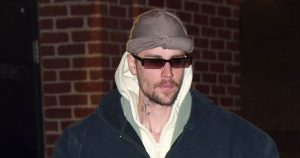Temporary Protected Status (TPS), a decades-old immigration program, has emerged as a contentious issue amidst the transition of presidential power. Established in the 1990s, TPS grants temporary legal status, including work permits and protection from deportation, to foreign nationals already in the U.S. whose home countries are deemed unsafe for their return. This designation can be granted due to ongoing armed conflict, environmental disaster, or other extraordinary and temporary conditions. The program has been instrumental in providing refuge for hundreds of thousands of individuals fleeing instability in their home countries.
The Biden administration has actively utilized TPS, designating or re-designating several countries, including Venezuela, Haiti, and Afghanistan, thereby offering safe haven to a substantial number of their citizens. Currently, 17 countries hold TPS designation. However, the future of the program is uncertain with the incoming Trump administration, which has signaled its intention to drastically curtail or even eliminate TPS. This potential shift in policy has sparked alarm among Democrats, who are urging President Biden to take decisive action to preserve the program before his term ends.
The Trump administration’s previous attempts to terminate TPS for several countries were entangled in protracted legal battles initiated by civil rights groups. The program’s vulnerability was further highlighted in 2024 amid concerns about mass migration from Haiti facilitated by humanitarian parole programs and the CBP One app. This influx of Haitian migrants, particularly in Ohio, fueled Republican criticisms and accusations that TPS was being exploited, and served as a focal point in the political campaigns of former President Trump and Senator JD Vance. Trump explicitly pledged to revoke TPS for Haiti, arguing that it had fostered uncontrolled migration and placed undue burdens on American communities. Conservative critics have long contended that repeated extensions render TPS a misnomer, transforming a supposedly temporary program into a pathway to permanent residency.
Republican efforts to restrict TPS have gained momentum in Congress. Senator-elect Jim Banks has introduced legislation requiring congressional approval for TPS designations and limiting their duration to 12-month periods, subject to further congressional extensions. These legislative initiatives align with Trump’s stated intention to implement large-scale deportations, potentially coupled with restrictions on TPS and other immigration benefits.
Facing the prospect of a significant rollback of immigration protections, Democratic lawmakers have implored President Biden to extend TPS and other programs to mitigate the impact of the incoming administration’s policies. In a letter spearheaded by Senator Dick Durbin, Democrats emphasized the urgency of the situation, stressing the dwindling time remaining for the Biden administration to solidify its immigration agenda and safeguard vulnerable immigrant families. They underscored the need to build upon the work of the past four years and ensure the continuation of protections for those seeking refuge in the United States.
Despite these urgent calls, the Biden administration has yet to take concrete steps regarding TPS, and there are no immediate indications of forthcoming redesignations or extensions. This inaction leaves the future of hundreds of thousands of TPS beneficiaries shrouded in uncertainty, as they face the possibility of losing their legal status and becoming vulnerable to deportation. The fate of TPS hangs in the balance, caught between the opposing immigration policies of the outgoing and incoming administrations. The coming weeks will be crucial in determining whether the program survives in its current form, is significantly altered, or is dismantled altogether.










